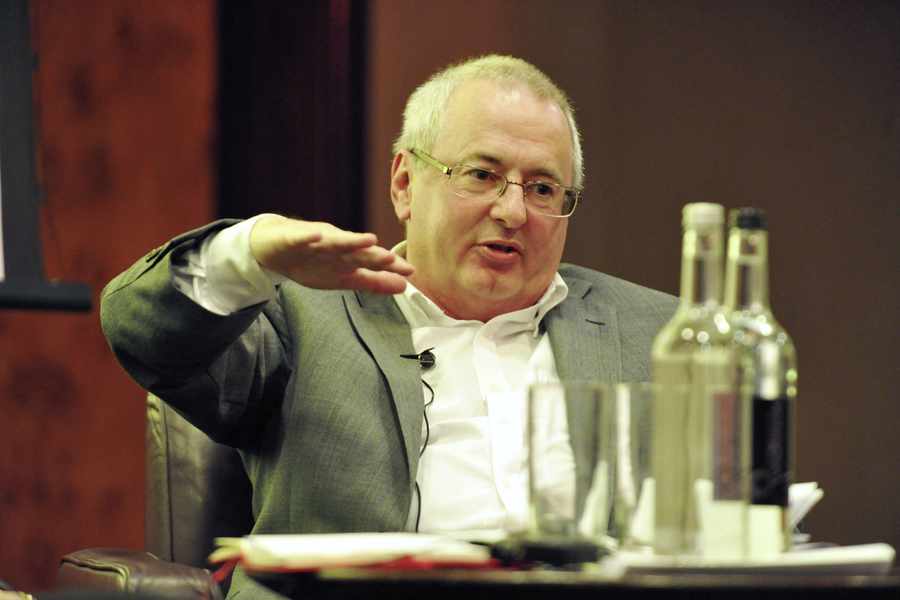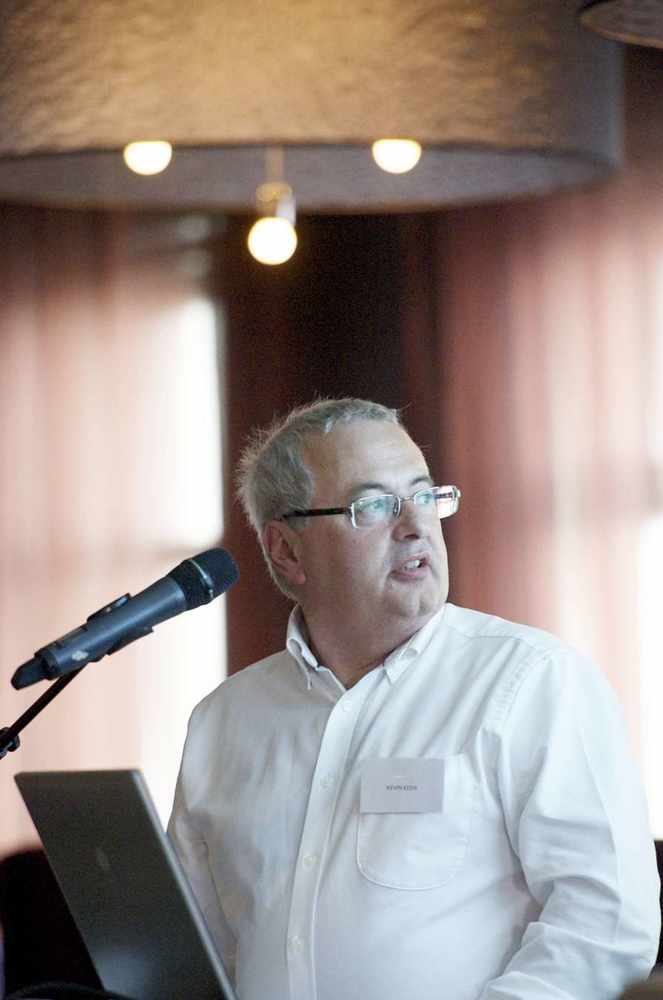
- Educated at St Helier Boys School
- Trained at accountancy firm Alex Picot
- Joined Le Riches in 1985 as an accountant, worked up to finance director and then head of supermarket business.
- Moved to Jersey Dairy in 2003
- Interim chief executive of Visit Jersey between 2014 and 2015
- Joined Jersey Post as chief executive in 2011
- Finance director of the Jersey Battle of Flowers since 2007
- Married 32 years, to Christine and has three grown-up daughters
- Non-work interests old motorcycles and cars
Kevin Keen told a business audience on Tuesday that government departments needed to work together instead of protecting their own budgets.
The Island’s Chief Minister, Ian Gorst, announced last week that voluntary redundancy would be offered to public sector workers from 1 June, with compulsory redundancies likely to follow.
The measures, together with a pay freeze for all States employees except nurses and midwives, are being put in place to shave £60 million from the annual wage bill of £346 million, which equates to £1 million a day.
Jersey businessman Mr Keen, who was appointed in February with UK-based Sir David Henshaw, to review public finances and find savings, spoke at Tuesday’s Institute of Directors lunch about some of his experiences since taking on the high-profile role.
‘I have no executive responsibility or authority – all I can do is advise,’ he said. ‘What we have tried to say to the Council of Ministers is that they have to keep to the bargain and they have to do something about spending.
‘The current system has a lot of silo thinking – departments see their budget as their territory and they try to protect that.’

Mr Keen said that Senator Gorst had dropped the promise of ‘no compulsory redundancies’ not because he did not care about the staff, but because he cared about taxpayers more. ‘I think that is entirely right,’ he said.
Outlining a three-pronged strategy – asking the public to pay more; growing the economy ahead of economic forecasts; and constraining staff costs by £60 million – he said that in fact the number of staff was expected to rise in education and health, so the objective was to constrain, rather than to cut. ‘We know that reducing staff is difficult for staff and customers, but sometimes we have to make hard decisions. It is important to be ruthless with those decisions, but sympathetic when it relates to people.’

Mr Keen said that in his opinion there had never been a better time to reduce the number of employees in the public sector –currently numbering more than 8,000. He said that the private sector was looking for staff as a result of States policy to control immigration. ‘I am pretty confident that they will find jobs in the private sector,’ he said.
‘There are some great people who work for the States and some have been in touch, saying we know we can save money. That gives me confidence.
‘I believe we can get through this.’
Asked how much of the increase in expenditure had been due to politicians meeting public demand, he said that States spending had ‘really taken off’ around 2007. ‘I do not want to be cynical, but they had the money and will always find something to spend it on, and that’s what happened.’
Overall, there was ‘plenty of opportunity to do things simpler, better, cheaper’, he concluded, by simplifying the structure, using e-government and taking opportunities to work with Guernsey, and putting the customer in the forefront. ‘I do not see enough of that – it reminds me of other businesses I’ve been in where the customer is what we talk about some other time.
‘But it is not easy, and they will need our help as well,’ he added.
BUSINESSES which lose sight of the importance of providing excellent customer service are not good businesses.
The States might not be a business – and they may serve ‘users’ rather than customers – but all departments must understand that they exist to provide excellent services to the public.
In many areas of the public sector, that is exactly what happens, but yesterday businessman Kevin Keen, who has been brought in by ministers to advise on savings and making the public sector more efficient, fuelled concerns that a self-serving silo mentality was acting as a bar to the delivery of better, cheaper and simpler services.
It is time that some heads were knocked together and common sense was allowed to prevail.







